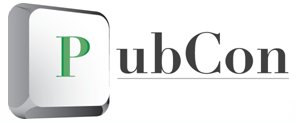
Welcome back to PubCon! I’m currently sitting on the floor alll the way in the back of the room trying to see the screen. If my back and eyes aren’t dead after this conference, I will be convinced I am a robot! There are SO many people here! And with damn good reason.
Up on stage are Tim Ash, Brad Geddes, Kate Morris, and Joanna Lord. At least, I think that’s them. It’s blurry from way back here.
Joanna Lord is up first. She gets some loud SCREAMS from the audience. She clearly brought the JLord entourage.
When people are talking about landing page optimization, what they’re saying is that they want their site to run better. They want people to feel comfortable on their site, get the info, make a decision, purchase/convert, be happy and spread the word. Her day at SEOmoz involves a lot of caffeine, data and figuring out why stuff is happening.
You want to make sense of the chaos.
- Data mine for pages to focus on
- Research their current performances
- Test our new options
- Roll out changes, rinse, repeat
It seems really simple, but that’s just never the case. You get bottlenecks. What tools should you be using?
Data mine for pages that need a face lift: Use your analytics before you start testing pages. She recommends using a third-party analytics tool like KissMetrics. You need to have a conversion rate assigned to every page that matters to you. You should not be testing a page or changing a page if you don’t know what it’s conversion rate is.
Research their current performances:
- Clicks: Where are they clicking
- Usability: What are thy thinking?
- Why do they leave? [People always leave. Wait, what?]
Where are they clicking? There are tools to help you find out:
- Clickbeat (free)
- CrazyEgg
- ClickDensity
What are they thinking?
As site owners, we tend to try and think for our customers, but you really don’t know unless you test. It’s a bitch slap in the face, but it’s a deserved one.
- UserTesting ($39)
- Keynote (free trial)
- KissInsights (free, $29)
Why did they leave? These are the people you want to talk to.
- ProvideSupport
- Zendesk
- Assistly
Don’t be afraid to be a little invasive for awhile. This is your site. Dig into it.
Test Out New Options
You have to create a data-testing culture. You can’t just run one test. You have to stay excited about it.
Roll out Changes, Rinse, Repeating
Dude, stop dropping the ball here! Don’t forget to report results and say thank you. Landing page optimization is a process. She’s always been really PPC-focused. Now, in the past year, she’s seen a big transition where every page is an acquisition page. If you don’t have someone working full time on LPO, you’re missing out. Because if you’re not making more money off all the traffic your site is getting, it doesn’t matter.
Next up is Kate Morris. Moderator Ken Jurina says we’re gonna love her nuts. I…I don’t even know what that means.
What is a landing page?
- The page that your PPC ad goes to
- A no indexed page you use for marketing
- Your About Us page
- Specifically designed pages accessed by a coded URL for tracking process
From your homepage – Every one will tell you not to use your home page as a landing page, but this is usually the page that gets all the money, all the love and all of the focus. However, your About Us page converts to. Maybe not for a product, but for something else.
You’re Losing Conversions
- Know your conversion rate
- Give contact information (at the very least). If someone calls you, that’s a conversion. The Web is getting more and more social. That information has to be there.
- Keep in mind user intent – various products, company information, help. Why are people there?
- Find non-converting, high-traffic pages. You have them…you just don’t know you do.
- Google Webmaster Tools
- Check top keywords. Search queries report. Look for outliers.
- What Page Is Ranking? There can be more than one. Optimize all pages.
- Google Analytics
- Top Landing Page Report
- Search for Outlier
- Check Conversion Rate
- Check Rank
The Magic Trick
- Call to Action
- Conversion
- Contact Information
- Newsletter Signup
- Ad
- Track it all
Next up is Tim Ash. He asks who stayed out past 3am this morning and people actually raise their hands. Ouch, really? Dude, I was in bed at 11pm.
Your Ecommerce Website is NOT a “Catalog”
A catalog is a page of templates
- Page Shell
- Homepage
- Product detail
Page Shell – Common Problems
- Unprofessional appearance
- Lack of trust and credibility
Fifty milliseconds is the amount of time it takes for someone to form an opinion about your landing page. We know if it’s shit or if its professional. If you have a really unprofessional page, you have a deep hole you need to dig yourself out of it. Borrow trust from better known brands by placing testimonials or places you’ve been featured on your site. He shows how one company redesigned their site for a 90 percent increase in conversions. If the overall perception is that your site is cheese, fix the overall, not the details.
Best practices for page shells
- Create a professional and uncluttered look
- Borrow authority and credibility from others
- Make visitors feel safe
Homepage – Common Problems
- Too many choice. It’s a camel – a horse designed by committee.
- Eye-catching commercials
- Featured products or short-term promotions
Organize a map of the world to show people what’s important. Don’t just throw stuff on the wall to see what sticks. He says wire frames are really important.
Homepage – Best Practices
- Primary purpose is self-selected navigation
- Not commercials
- Give people a small set of choices
Product Details – Common Problems
- Unclear call-to-action
- Lack of social proof
- Unattractive product images
He shows a few landing pages from 1-800-Flowers to see how people interact with a page. He says, like cholesterol, there is good attention and bad attention.You want the good stuff.
Next up is Brad Geddes.
He says it’s never fun following Tim because Tim is a lot funnier than he is. He likes to go first. Don’t we all, Brad, don’t we all.
Above “The Fold”
We hear about this concept a lot. Tim says that 76 percent of all clicks occur above the fold. That’s why this concept is so important. People don’t read information below the fold, they just scan information. You should be put your primary action above the fold. If you have long pages, put your call to action on the page twice – once above fold and then again at the bottom. Give them all the information they need, but also reinforce what you want them to do.
The Problems With Above The Fold
Use your analytics to find out what “above the fold” is for your audience. You need to know how your users are viewing you so you know what you look like in different resolutions and where your line is. The issue with speed isn’t Google, it’s about not annoying everyone who lands on your site. Speed is relative to location. If your site is hosted on the Vegas strip, it loads faster when you’re in Vegas than when you’re in Europe. Fifty one percent of people in a rural area have broadband, 49 percent of people don’t. What are your visitors are using? Your analytics can show you connection speeds.
Know what browsers your audience is using to access your site. What does it look like cross-browser?
Know Flash usage – check your analytics to see how many people are using Flash. This will tell you how many people you’re pissing off when they can’t see your site. View Java usage.
Use segments to compare data. See if there are differences based on browsers, screen resolutions, etc. Do visits line up with conversions? If you don’t know your analytics then you’re designing for the wrong person.
And we’re out. Holy moly.


